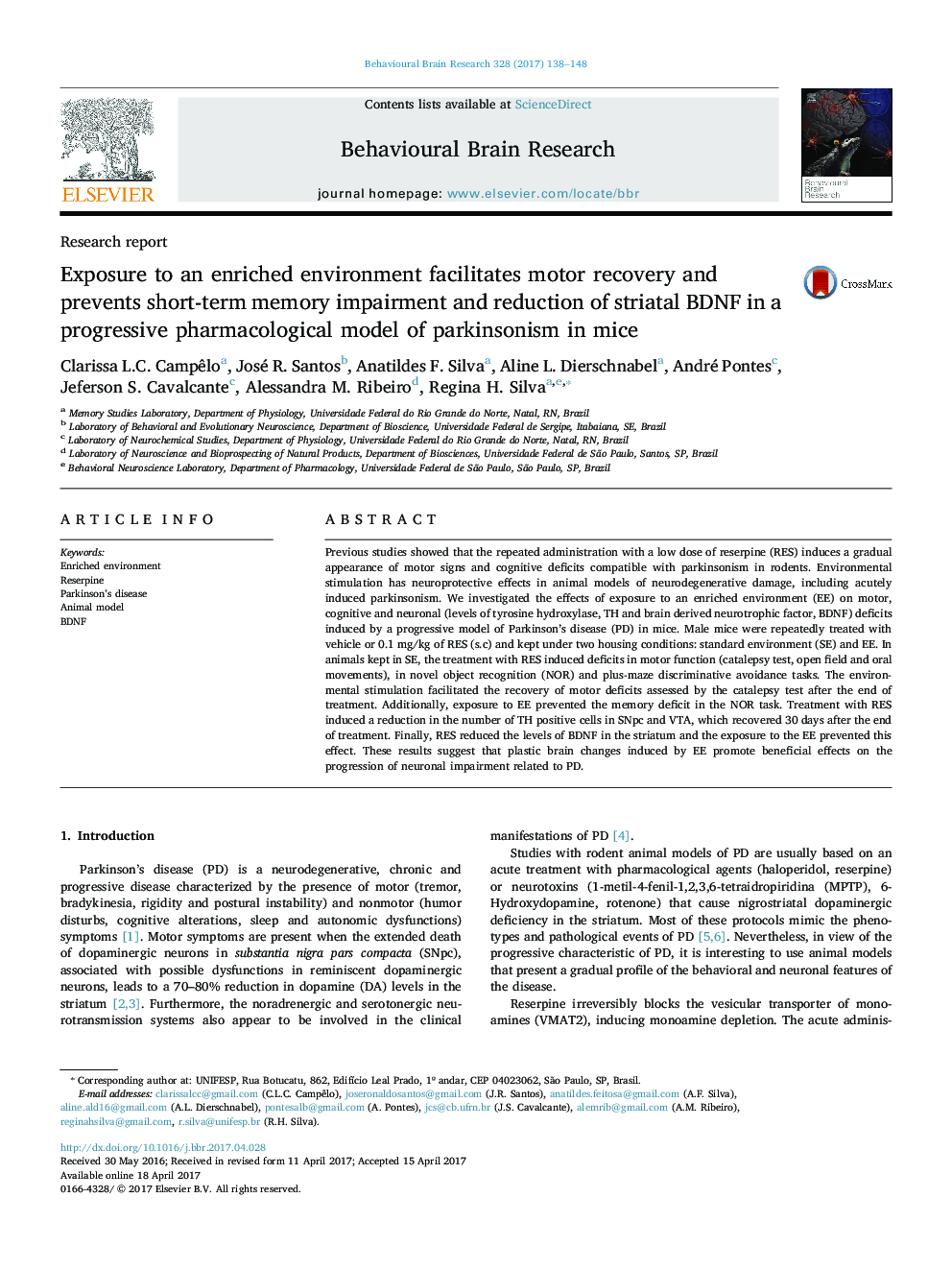| Article ID | Journal | Published Year | Pages | File Type |
|---|---|---|---|---|
| 5735161 | Behavioural Brain Research | 2017 | 11 Pages |
Abstract
Previous studies showed that the repeated administration with a low dose of reserpine (RES) induces a gradual appearance of motor signs and cognitive deficits compatible with parkinsonism in rodents. Environmental stimulation has neuroprotective effects in animal models of neurodegenerative damage, including acutely induced parkinsonism. We investigated the effects of exposure to an enriched environment (EE) on motor, cognitive and neuronal (levels of tyrosine hydroxylase, TH and brain derived neurotrophic factor, BDNF) deficits induced by a progressive model of Parkinson's disease (PD) in mice. Male mice were repeatedly treated with vehicle or 0.1Â mg/kg of RES (s.c) and kept under two housing conditions: standard environment (SE) and EE. In animals kept in SE, the treatment with RES induced deficits in motor function (catalepsy test, open field and oral movements), in novel object recognition (NOR) and plus-maze discriminative avoidance tasks. The environmental stimulation facilitated the recovery of motor deficits assessed by the catalepsy test after the end of treatment. Additionally, exposure to EE prevented the memory deficit in the NOR task. Treatment with RES induced a reduction in the number of TH positive cells in SNpc and VTA, which recovered 30Â days after the end of treatment. Finally, RES reduced the levels of BDNF in the striatum and the exposure to the EE prevented this effect. These results suggest that plastic brain changes induced by EE promote beneficial effects on the progression of neuronal impairment related to PD.
Related Topics
Life Sciences
Neuroscience
Behavioral Neuroscience
Authors
Clarissa L.C. Campêlo, José R. Santos, Anatildes F. Silva, Aline L. Dierschnabel, André Pontes, Jeferson S. Cavalcante, Alessandra M. Ribeiro, Regina H. Silva,
